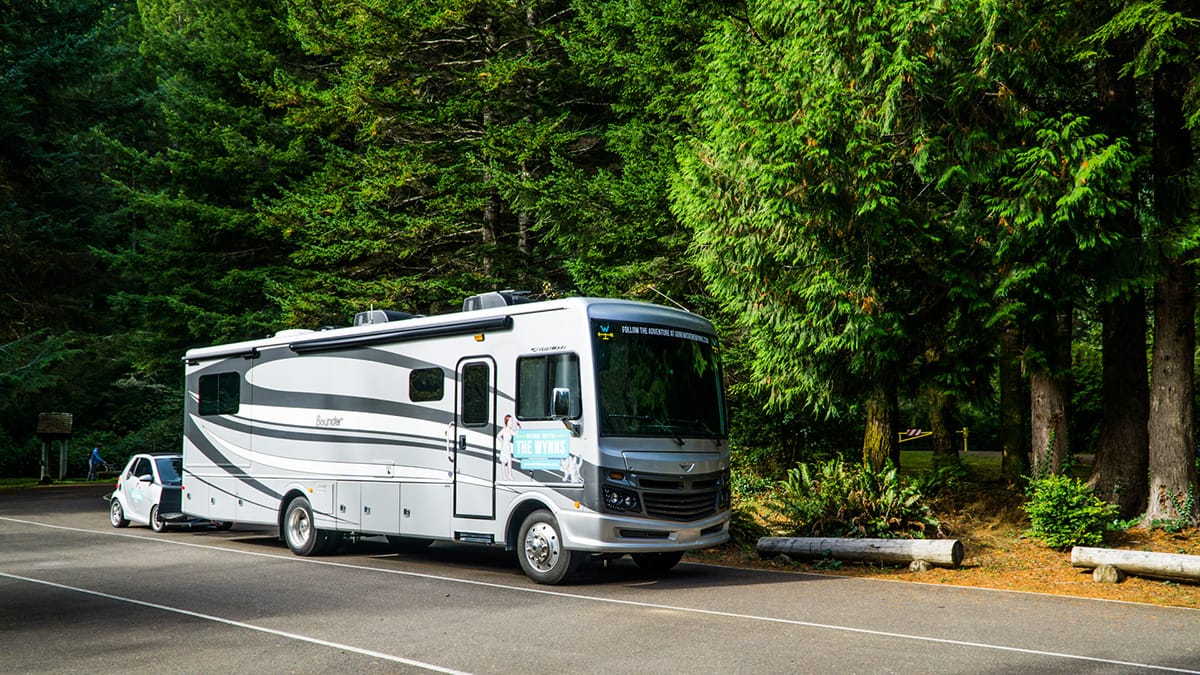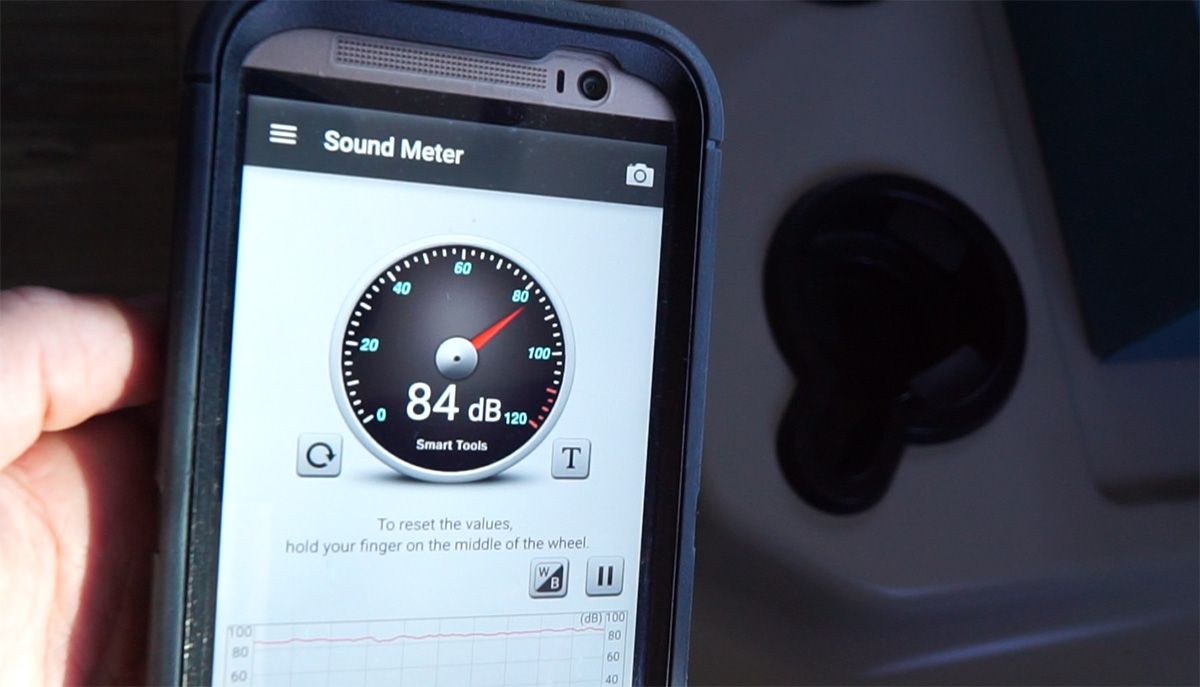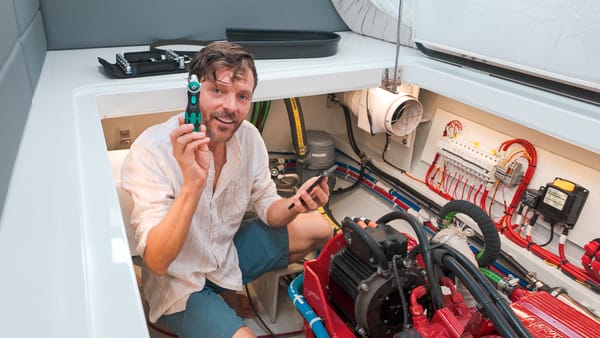Our Gas RV – Reducing Squeaks, Rattles & Engine Noise

If you’ve kept up with our Gas RV Experience series you know it’s been quite the roller-coaster. From the insanely loud engine (in comparison to our diesel), to loads of squeaks and rattles, and of course our transmission complaints. Last update we solved the Ford Gas RV Chassis Suspension Issues and now we’re discussing the repairs to reduce our engine noise and the annoying squeaks and rattles.
So hop in, buckle up and join us for our first drive as we leave the factory service center in Coburg, OR and head for the town of Florence and the beautifully rugged Oregon coast.
What did you think? We think it sounds a lot better than our previous videos. If you want to go back and watch the older ones here’s the link to Our Gas RV Experience – Noise, Ride & Performance and Our Gas RV Stabilizers – Do They Really Work.
Why don’t you like your new Gas RV?
We keep getting asked some form of this question, and we can understand why people might think it if they haven’t followed our Resurrecting Dinosaurs Series. Remember we’ve come from a series of three diesel RVs over the years and this is our first gas motorhome. Gas vs. Diesel is a debate that will never end so I won’t go into detail, but I’ll just say a gas coach takes some getting used to.
Part of the reason we’re in this coach is to test the all-new design for 2016 and report our feedback to Fleetwood, but most importantly for us is to provide our opinions to you! We felt switching to a gas motorhome would greatly increase our knowledge of this much less expensive RV chassis and what we experienced would be worth sharing.
Now to the question above, we absolutely love the layout and floorplan of this motorhome, in fact it’s the best floorplan we’ve ever had in an RV. Since we’ve come from the diesel RV world we can easily point out some of the items that could use some extra attention on a gas RV chassis. These are our opinions, sure not everyone will agree with us, but our feedback has already made positive improvements on Fleetwood coaches. Beyond that, we hope all the RV manufacturers are keeping up with our Gas RV Experience, taking notes and creating better motorhomes because of it. We put this information out there 100% to benefit everyone, not just the mfr. of our coach.
I hope that provides some insight to why we are so opinionated when it comes to the issues we point out on our new gas RV. It has nothing to do with one brand being better, or worse, than another brand but rather it’s about making the experience better for all consumers looking to purchase a new gas RV.
Loud RV Engine Noise
No matter what, if the RV engine is in the front you’re going to hear it. We loved our Monaco Vesta (Front Engine Diesel RV), but when I stepped on the pedal there’s no mistaking the engine is right underneath. The Bounder (Front Engine Gas RV) is pretty much the same except the gas engine whines at a much higher pitch, almost screaming at me for putting pressure on the pedal. We alerted this to Fleetwood and they came up with what they told me is a new “insulation pack” to quiet the engine noise and help keep the heat from rising into the cabin.
Since we had the insulation installed in Eugene we’ve driven through the mountains, the forest and now we’re on the rugged coast of Northern California. I can say with confidence the engine noise has been reduced and the ear piercing scream has been downgraded to a loud whine.
What is the Insulation Pack?
I asked Fleetwood what they used for the insulation pack to see if anyone can make this upgrade to their RV. They told us the insulation pack is “just Lizard Skin and it works great!” OK…what is Lizard Skin? After a little online investigation I found out that Lizard Skin is a type of spray on ceramic insulation used for sound dampening and/or heat control. Anyone can purchase it and spray it wherever their hearts desire for an improved quiet ride.
To do it yourself you’ll want to get a bucket of Lizard Skin Sound Control and a Super Pro Spray Gun Kit. And that’s it! For a few hundred bucks you can have more than enough sound dampening stuff to spray more than just the engine cover (aka Dog House).
It’s supposed to be an easy Do-it-Yourself job. Take off the dog house surrounding the engine and add the Lizard Skin and it should help quiet the engine noise and reduce the heat that seeps through the dog house. I was warned not all gas RV engine covers (aka dog house) have enough room to add this material, you should always confirm there’s space before installing and make sure you spray the insulation as indicated in the instructions so it doesn’t come loose and cause damage. Once I found out they just used this simple spray stuff I was bummed they didn’t spray more! If you’re going to add Lizard Skin (or similar product) to your coach I’d spray it in the generator bay, under the wheel wells and everywhere else that seeps in annoying noises.
If you’re not into spraying stuff then we’ve also been told Dynamat Xtreme works well for general sound deadening and the Dynamat Hoodliner works wonders for engine noise and heat. I’ve used Dynamat in the past for my car audio systems and it worked well, but beware, this stuff is expensive, a small pain to install and it’s heavy so make sure you understanding what you’re ordering before you hit the purchase button.
What is the Decibel reading from the engine?
On our original video in Alaska a few people suggested I install a decibel reader app on our phone, I did, and sadly the news is rather grim. Our decibel rating while traveling down the road at 55mph hovers around the 85db range. Even when the engine is whining at full throttle the db range doesn’t change much, which tells me the ambient road noise is an equivalent problem to the engine noise. The only solution I can come up with is installing more insulation in the wheel wells (I think the spray foam would be a helpful start, adding insulation under the flooring at the factory in the drivers’ area. At the end of the day we’re driving a square box down the road, so unless proper aerodynamics is considered, better seals on the windows, thicker windshields, better entry doors and a host of other items I’m guessing the decibel level of the ambient road noise is never going to be satisfactory.

Transmission and Cruise Control
We have not had the time to research the fixes that many of you suggested. I hope we can find the time in the coming months and create a video with a good solution for these issues I notated in our Alaska Video. That said, Ford has officially announced the 6spd transmission for the F550 / F53 chassis and that should provide a valuable solution at the factory level in late 2016 and 2017 Gas RV models.
Why we had so many dash squeaks
First of all this is a test coach, one of the first 2016 Fleetwood Bounders off the line, the factory made huge changes and we added a lot of custom design upgrades along with huge technology modifications. We picked up our spankin’ new RV with 9 miles on it, loaded it to the max GVWR and headed for Alaska. This is something we don’t recommend on many levels: a) buying the first new model coach off the line is never the best idea since all the “kinks” haven’t been worked out. b) a proper shakedown trip should be within a few hundred miles of your preferred service center because there will be items that need repair after those first few miles. c) you shouldn’t load an RV to the max GVWR because it’ll effect the ride, braking, fuel economy, etc.
The extra squeaks and rattles came from a few screws falling out of the dash which happened early on driving some rough dirt roads in Alaska, in fact I think we lost 3 screws on the road to McCarthy, AK (but oh baby was it worth it!).
Needless to say our testing provided one insane shakedown trip, putting at least two year’s worth of wear and tear in a short six months, compared to the typical RVer. We drove well over 200 miles of bumpy dirt roads, took it through the mountains, parked it in the salty beach air and everything in between. Our feedback has been given and we’re assured that many of the adjustments have been made to the 2016½ 30th anniversary Bounder model update. Which is exactly why we agreed to switch from diesel and test a gas RV, to help make a difference.
Please don’t read this and think the squeaks and rattles are gone forever, we’ve owned enough RVs to know that’s simply not the case. We’re driving a house down the road, things will shake loose and new squeaks & rattles will eventually be found. For the time being, we’re just happy to have a quiet ride.
Is one RV brand better than another for a quiet ride?
From our experience we’ve found they’re all pretty similar when it comes to squeaks, rattles and engine noise. Granted we haven’t driven every RV out there, or every type of Motorhome, as far as I know there could be a Super C out there that’s quieter than a rear engine diesel!?!
As far as brands go this is our quick go-to answer when it comes to quality class A RV’s (in the $100k – $200k range): Winnebago, Fleetwood, Tiffin & Newmar seem to have a good reputation among fellow travelers and service centers alike. We’ve driven a few from each of these brands and we can agree, we have also driven other brands that are not as quiet. If you’re looking at higher end Motorhomes the only one we’ve had personal experience with is Monaco, so you’re on your own here.
As I mention in the video the only “whisper quiet” coach I’ve been in was a new Prevost conversion, I couldn’t stop smiling all the way down the road “wow” I remember saying “this is what it’s supposed to sound like at 60 Miles per Hour!” When you’re paying substantially more than $1,000,000.00 for a new motorhome I guess you can expect very little road noise, almost no squeaks or rattles and absolutely zero engine noise. Considering that’s way out of my budget I can live will a little noise while we’re en-route.
What do you think? Share your RV noise experiences and tips below to help people trying to make that big decision on what to purchase. Class A gas, diesel, class C, B, Super C and everything in between, we wanna hear it! Thanks for sharing, we’ll see ya on the road.




